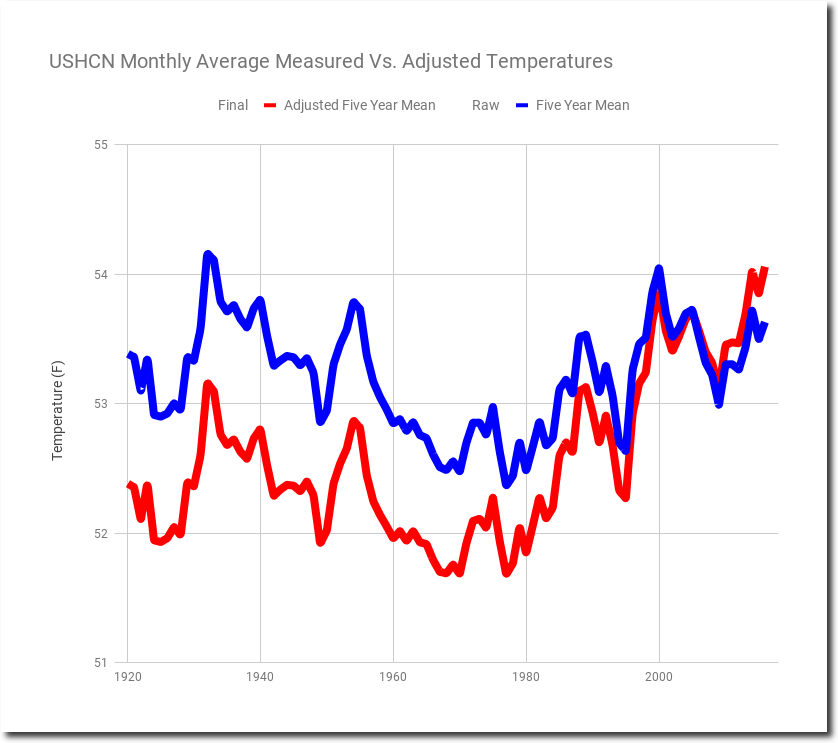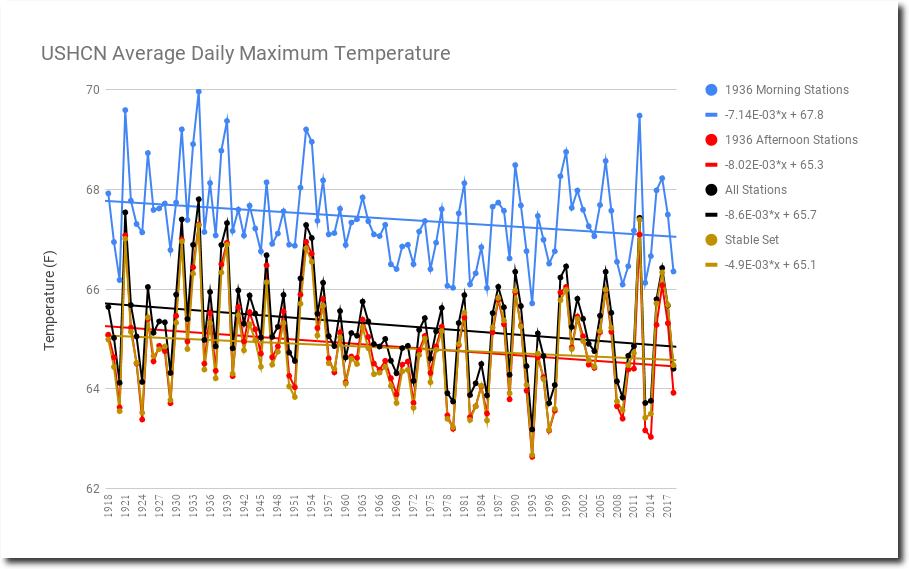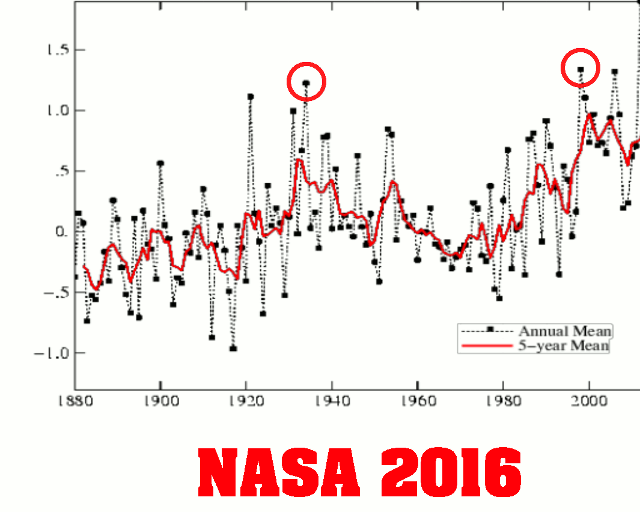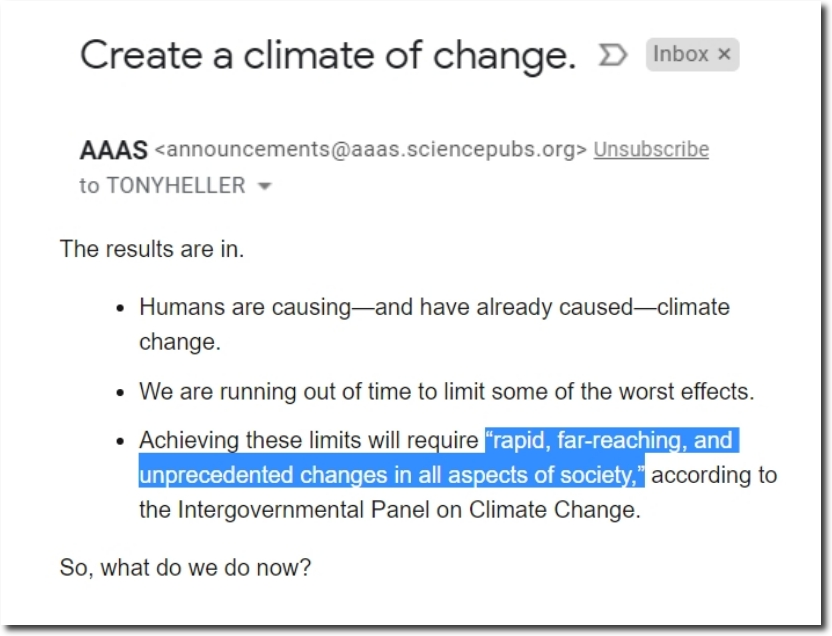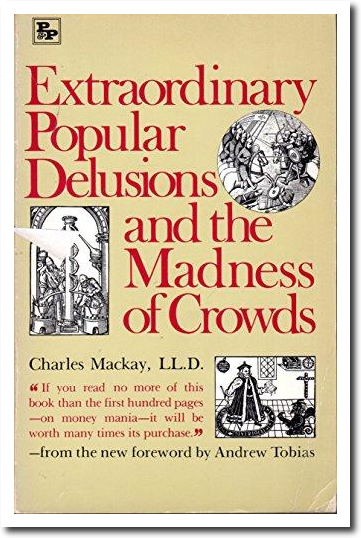NOAA massively tampers with US temperature data, to turn a century of cooling into warming.
The two leading excuses for tampering with US temperature data are time of observation bias, and changing station composition.
The time of observation bias adjustment is based on the idea that most stations during the 1930s reset their min/max thermometers during the afternoon, causing some double counting of hot maximum temperatures. NOAA adjusts for this by cooling the past, and warming the present.
It is simple enough to test their theory out, by splitting the stations into two groups – 1930s morning stations, and 1930s afternoon stations. If the TOBS theory is valid, the morning stations (blue line below) would be warming faster than afternoon stations (red line below.) But as you can see, the slope of both lines is nearly identical – both are cooling at about the same rate. The morning stations are warmer, because they are located at lower latitudes where people are more likely to work outside earlier in the day, The average latitude of the morning stations is 38.5°N and the average latitude of the afternoon stations is 39.7°N.
The changing station composition adjustments are based on the fact the set of USHCN stations in use varies from year to year. Again, it is simple enough to test this theory out, by using only the 896 stations which were active in both 1918 and 2018. The black line below is the set of all stations and the brown line is the set of stable stations. The stable stations are not cooling quite as fast as the set of all stations, but the difference is minimal.
Tamino tried to sucker his readers over this concept, but the bottom line is that there is no valid excuse to tamper with temperature data.
USA Temperature: can I sucker you? | Open Mind
NOAA data tampering is the excuse for turning cooling into warming.
Which then becomes the excuse for destroying civilization.
Achieving these limits will require “rapid, far-reaching, and unprecedented changes in all aspects of society,”
Charles Mackay wrote about this in 1841.
Men, it has been well said, think in herds; it will be seen that they go mad in herds, while they only recover their senses slowly, and one by one.
Charles Mackay

